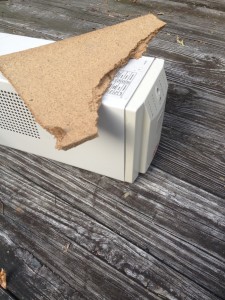 SMB stands for Small and Medium-sized Business. Today I want to talk to the small businesses. I’ve written a lot about cloud computing, backup strategies and disaster recovery .These are important topics for larger organizations. For smaller organizations, they are not important. They are critical.
SMB stands for Small and Medium-sized Business. Today I want to talk to the small businesses. I’ve written a lot about cloud computing, backup strategies and disaster recovery .These are important topics for larger organizations. For smaller organizations, they are not important. They are critical.
Small businesses are a cornerstone of our economy and yet in many ways they remain the most vulnerable. This past week I lost power in my home and consequently my home office. I was lucky that I had alternate locations for shelter and work. However, in spite of this I was still able to maintain business continuity. As I discussed with Phil Simon in The New Small, small businesses have access to technology that was once the exclusive domain of large enterprises. So I suggest these 2 key principles for protecting your business in the event of disaster:
1. Planning
You and your staff need to start with a simple question: “If I lost access to my place of work, what would I need to function?” For retail or location-specific business this is obviously a bigger challenge, but some brainstorming among your staff, colleagues and even competitors might turn up some surprising results.Thinking about this before it’s required is much more effective than trying to scramble during an emergency. Some key questions:
- Equipment: Are there key pieces of equipment you need to function? You may not be able to afford a spare but can you identify where you might be able to secure it or borrow it?
- Operations: Where will your employees go if they can’t come in to the office? How will they communicate with each other? With customers? How will your customers communicate with you? Will they have access to what they need to do their job?
- Technology: Does the technology — telecom, software, data — you need to run your business reside in your location? If so, what can you do to safeguard it? Can you put some of it in the cloud or configure a disaster recovery site?
2. Communications
This sounds obvious, but maintaining communications within your ecosystem (employees, vendors, partners, customers) is critical. Uncertainty erodes trust, the cornerstone of many small businesses. Make sure you communicate. If you are not sure what the status of your business is — how long it will take to get back up and running; what the impact will be on your customers — at least communicate that. As many who lost power during Hurricane Sandy in the Northeast will attest, hearing no news is often worse than hearing bad news. Keeping accurately people informed goes a long way towards maintaining and inspiring trust.
We take many things for granted today and we optimistically expect that we are long past worrying about basic needs. However, as recent events have shown, sometimes nature has a different plan. So plan to stay in business. An “ounce of prevention” is more than a “pound of cure.” It might very well keep you in business.
This post was written as part of the IBM for Midsize Business program, which provides midsize businesses with the tools, expertise and solutions they need to become engines of a smarter planet.
